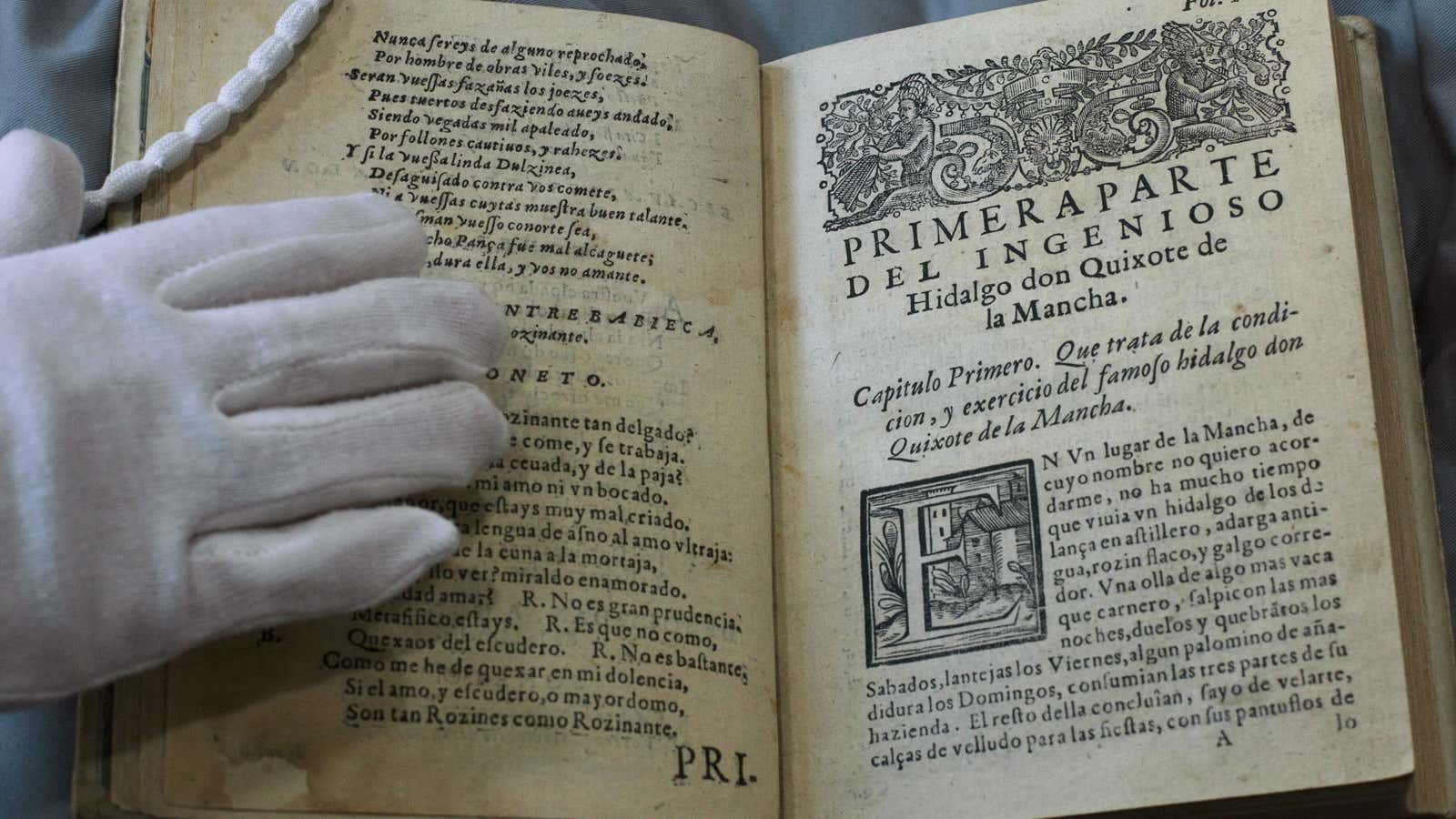For better or for worse, languages across the world are being shaped—and truncated—by internet users who want to get their message across as quickly and easily as possible. In Spanish, users replace “qué” (what) with “q,” while the word “más” (more) is often reduced to a simple “+.” But a few defenders of the Spanish language are now using the internet as a way to fight back.
This week, Twitter and the Fundación del Español Urgente, a Spanish non-profit that seeks to guide internauts in the proper use of the language of Cervantes, launched a campaign to promote accent marks in hashtags.
The vehicle: #acentúate. The hashtag, which translates to “accent yourself,” was tweeted 16,000 times in the first 24 hours of the campaign on Sept. 17, including a mention by Antonio Banderas.
Accent marks are essential to good communication in written Spanish because they change the meaning of words, as demonstrated by the tweet below:
Inglés means English. Ingles, groin.
The Spanish group behind the hashtag initiative, called Fundéu for short, says its goal is not to eradicate errors in personal communication through SMS or WhatsApp. Rather, it wants Spanish speakers to overcome the laziness of spelling correctly in public online forums, such as Twitter. (Inserting accents requires tapping at least a couple of extra keys on a regular keyboard, though some mobile devices have made it easier.)
“That difference in code is what young people—and not so young people—have to learn,” said Javier Lascurain Sánchez, general manager for the foundation, which is sponsored by Spanish bank BBVA.
And while it had netizens’ attention, Fundéu also reminded them to also choose Spanish versions of new words, rather than relying on English terms. A few years ago, for example, the group came up with “tuit” for tweet.
Tuit is now official; in October, Spain’s official language arbiter, the Real Academia Española, added the word into its latest printed dictionary.
